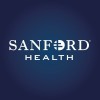
Safety, Tolerability, and Efficacy of Encaleret in Participants With Autosomal Dominant Hypocalcemia...
Autosomal Dominant Hypocalcemia (ADH)The primary purpose of this study is to evaluate the safety, tolerability and effectiveness of encaleret in participants with Autosomal Dominant Hypocalcemia Type 1 (ADH1).

Pediatric and Adult Registry for Patients With ARThrogryposis
Arthrogryposis Multiplex Congenita (AMC)The aim of the study is Epidemiological Evaluation of a single-centre national cohort of patients with Arthrogryposis multiplex congenita (AMC)

NuroSleeve Powered Brace & Stimulation System to Restore Arm Function
Neurologic DiseasesHemiparesis12 moreThe purpose of this study is to investigate if a person with weakness or paralysis in one or both arms, can use the NuroSleeve combined powered arm brace (orthosis) and muscle stimulation system to help restore movement in one arm sufficient to perform daily activities. This study could lead to the development of a product that could allow people with arm weakness or arm paralysis to use the NuroSleeve and similar devices to improve arm health and independent function.

A Prospective Observational Study of Foam Sclerotherapy .
Autosomal Dominant Polycystic KidneyRenal Cyst2 moreAn observational prospective study to determine the impact of foam sclerotherapy of large, dominant kidney/liver cysts on quality of life outcomes and kidney/liver cyst volumes at up to 12 months of follow-up in patients with autosomal dominant polycystic kidney disease (ADPKD) and autosomal dominant polycystic liver disease (ADPLD).

Characterization of the Nrf2 Response in Patients With Autosomal Dominant Polycystic Kidney Disease...
Autosomal Dominant Polycystic Kidney DiseaseThe purpose of this study is to characterize oxidative stress and the Nrf2 antioxidant response in early stages of Autosomal Dominant Polycystic Kidney Disease (ADPKD), while identifying candidate biomarkers.

National Registry of Rare Kidney Diseases
Adenine Phosphoribosyltransferase DeficiencyAH Amyloidosis85 moreThe goal of this National Registry is to is to collect information from patients with rare kidney diseases, so that it that can be used for research. The purpose of this research is to: Develop Clinical Guidelines for specific rare kidney diseases. These are written recommendations on how to diagnose and treat a medical condition. Audit treatments and outcomes. An audit makes checks to see if what should be done is being done and asks if it could be done better. Further the development of future treatments. Participants will be invited to participate on clinical trials and other studies. The registry has the capacity to feedback relevant information to patients and in conjunction with Patient Knows Best (Home - Patients Know Best), allows patients to provide information themselves, including their own reported quality of life and outcome measures.

CLARIFY: ADH1 and ADH2 Disease Monitoring Study (DMS)
Autosomal Dominant HypocalcemiaA global, multi-center, Disease Monitoring Study (DMS) in participants with Autosomal Dominant Hypocalcemia Type 1 (ADH1) or Autosomal Dominant Hypocalcemia Type 2 (ADH2) designed to characterize ADH1 and ADH2 disease presentation and progression through retrospective (past) and longitudinal prospective (over time into the future) data collection.

Rare Disease Patient Registry & Natural History Study - Coordination of Rare Diseases at Sanford...
Rare DisordersUndiagnosed Disorders316 moreCoRDS, or the Coordination of Rare Diseases at Sanford, is based at Sanford Research in Sioux Falls, South Dakota. It provides researchers with a centralized, international patient registry for all rare diseases. This program allows patients and researchers to connect as easily as possible to help advance treatments and cures for rare diseases. The CoRDS team works with patient advocacy groups, individuals and researchers to help in the advancement of research in over 7,000 rare diseases. The registry is free for patients to enroll and researchers to access. Visit sanfordresearch.org/CoRDS to enroll.

Survey Study and Records Review of Treatment Outcomes in Freeman-Sheldon Syndrome
Freeman-Burian SyndromeFreeman-Sheldon Syndrome6 moreThe purpose of this study is to evaluate the difference in diagnosis accuracy, treatment outcomes, patient perspectives, facial function and walking ability, emotional and social health, and respiratory complications between Freeman-Burian syndrome (formerly, Freeman-Sheldon or whistling face syndrome), Sheldon-Hall syndrome, and distal arthrogryposis types 3, and 1. The approximate cumulative total time for study-related activities will be 3 hours, including email communication, survey completion, and a medical interview. The study will involve completing 6 short ½ to 1-page surveys and participating in a medical interview. Participants may be asked to provide medical records for review. All study-related activities will take place remotely, and no travel is required.

Delineating the Molecular Spectrum and the Clinical, Imaging and Neuronal Phenotype of Chopra-Amiel-Gordon...
Genetic DiseaseChopra-Amiel-Gordon Syndrome2 moreThe purpose of this study is to establish a registry of individuals with confirmed or suspected Chopra-Amiel-Gordon Syndrome (CAGS) to learn more about the range of symptoms, changes in the structure of the brain seen on imaging, and learning difficulties that individuals with this disorder may experience. The investigators will obtain medical history, family history, MRI records, patient photographs, and genetic test results from individuals with confirmed or suspected CAGS. A subset of participants will also undergo a standardized neurobehavioral assessment. This data will be maintained on a secure research database. Sample collection will be offered to participants for the functional testing and the generation of iPSC cell lines, for neuronal reprogramming and phenotyping.
